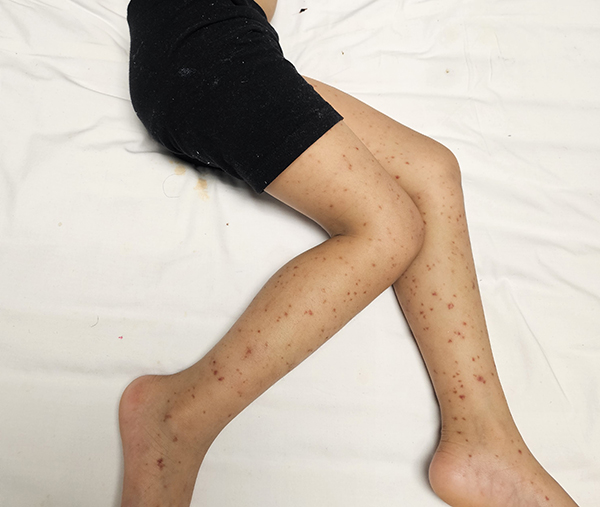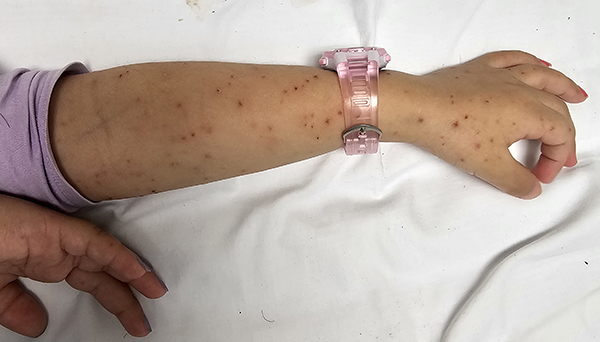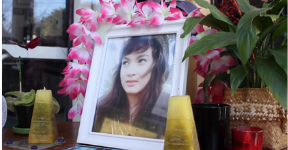

Find out about protecting your child against meningococcal B disease [1]
Meningococcal disease is an infection caused by a bacteria, and can lead to 2 very serious illnesses:
Some children will have both meningitis and septicaemia, others will have one or the other.
There are several different types of meningococcal bacteria including A, B, C, Y and W.
Between 2013 and 2017, there were between 45 and 112 cases of meningococcal disease each year in New Zealand.
It's more common in winter and spring. The highest rates of meningococcal disease occur in children aged under 5 years and young people aged 15 to 19 years. But, people of any age can be affected.
Meningococcal disease can easily spread from person to person.
The bacteria can spread through close contact such as:
Some people will carry meningococcal bacteria in their nose and throat without getting sick.
Scientists and health professionals don't yet know why some people who come into contact with meningococcal bacteria get sick and others don't.
Symptoms may appear in any order and some may not appear at all.
In the early stages of meningococcal disease, symptoms may seem similar to those of the flu or any other viral infection. The disease can develop very quickly and is difficult to diagnose.
It's important to be aware of the symptoms so you can get medical help straightaway - whether it's day or night.
Meningococcal disease can be treated with antibiotics but early treatment is very important.
Know about the early symptoms of meningococcal disease and take action if you are concerned.
Get urgent medical help if your child has one or more of the symptoms below.
Photos of a meningococcal rash (be aware only 1 in 3 children with meningococcal disease have a rash)


Don't wait - take action.
If your child has one or more of the symptoms of meningococcal disease:
Don't wait, take action (te Reo Māori) [2]
Don't wait, take action (English) [3]
Don't wait, take action (Samoan) [4]
Don't wait, take action (Tongan) [5]
Early treatment of meningococcal disease with antibiotics is very important because it can save lives and reduce the effects of the disease.
Once the healthcare team diagnose meningococcal disease in someone, they give antibiotics to that person's close contacts. This treatment clears the organism from their throat and prevents the spread of meningococcal disease from person to person.
Several vaccines are available which protect against different groups of meningococcal disease - A, C, Y, W, and B.
Find out about meningococcal B immunisation [1].
Menactra protects against meningococcal disease types A, C, Y and W.
Some at risk groups can have this free. This includes some young people aged 13 to 25 years in close-living situations.
Talk to your doctor about whether your child or young person can have Menactra.
You can watch a video of a family's experience of meningococcal C disease. In the 5 hours between waking at 3am with a headache and 8am when her family had gathered at Palmerston North Hospital, 18-year-old Letitia (Tesh) Gallagher's body had battled meningococcal C disease and lost.
Watch the video about a family's experience of meningococcal C disease [6]
 [6]
[6]For every 100 people who get the disease, 5 to 10 will die. Another 20 are likely to be left with some degree of serious disability, such as brain damage, deafness, loss of limbs or damaged skin. Some are also left with learning or behavioural difficulties.
While New Zealand has had a high rate of meningococcal disease, it has had a low death rate compared to other countries. This is partly due to high awareness of the disease and the importance of seeking urgent medical attention, and to early treatment.
Between 2013 and 2017, there were between 2 and 9 deaths from meningococcal disease each year in New Zealand.
Ripu Bhatia was a 21-year-old university student living in Sydney when he had his arms and legs amputated after getting meningococcal disease. You can read Ripu's story at the Stuff website.
This content has been produced by the Paediatric Society of New Zealand in collaboration with the Immunisation Team, Ministry of Health.
Photo of a child's chest with a meningococcal rash reproduced from DermNet's meningococcal disease page [8].
Photo of a meningococcal rash on and around a child's ear is by D. Scott Smith, MD, taken at Stanford University Hospital.
This page last reviewed 27 February 2023.
Email us [16] your feedback
Links
[1] https://kidshealth.org.nz/meningococcal-b-disease-immunisation
[2] https://www.healthed.govt.nz/resource/meningococcal-disease-dont-wait-take-action-m%C4%81ori-version
[3] https://www.healthed.govt.nz/resource/meningococcal-disease-dont-wait-take-action
[4] https://www.healthed.govt.nz/resource/meningococcal-disease-dont-wait-take-action-s%C4%81moan-version
[5] https://www.healthed.govt.nz/resource/meningococcal-disease-dont-wait-take-action-tongan-version
[6] https://kidshealth.org.nz/meningococcal-disease-youre-better-be-safe-sorry-video
[7] https://www.stuff.co.nz/pou-tiaki/300522706/losing-my-limbs-how-a-stuff-reporter-survived-the-devastation-of-meningococcal
[8] https://dermnetnz.org/topics/meningococcal-disease
[9] https://kidshealth.org.nz/node/2670?language=zh-hans
[10] https://kidshealth.org.nz/node/1581?language=zh-hans
[11] https://kidshealth.org.nz/node/2671?language=zh-hans
[12] https://kidshealth.org.nz/node/2672?language=zh-hans
[13] https://kidshealth.org.nz/node/2056?language=zh-hans
[14] https://kidshealth.org.nz/node/1559?language=zh-hans
[15] https://kidshealth.org.nz/node/1560?language=zh-hans
[16] https://kidshealth.org.nz/contact?from=http%3A%2F%2Fkidshealth.org.nz%2Fprint%2F95%3Flanguage%3Dzh-hans